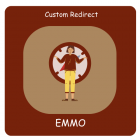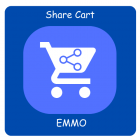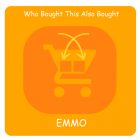Magento 2 Events Manager: A Comprehensive Developer's Guide

Magento 2 Events Manager: A Comprehensive Developer's Guide
The Events Manager in Magento 2 represents one of the most sophisticated and powerful architectural patterns in modern e-commerce platforms. Built on the Observer design pattern, this system enables developers to create highly extensible, maintainable, and decoupled applications that can respond to virtually any action within the Magento ecosystem.
Table Of Content
- Understanding the Events Architecture
- Event Types and Categories
- Creating Custom Observers
- Advanced Observer Techniques
- Event Scopes and Configuration
- Performance Optimization
- Real-World Implementation Examples
- Debugging and Troubleshooting
- Testing Strategies
- Best Practices and Common Pitfalls
- Integration with Other Magento Systems
- Advanced Event Patterns
- Security Considerations
- Monitoring and Analytics
- Event Documentation and Maintenance
- Migration and Upgrade Considerations
- Conclusion
- FAQs
Understanding the Events Architecture
Event Manager Interface
The \Magento\Framework\Event\ManagerInterface is the heart of the event system. Key methods include:
<?php
interface ManagerInterface
{
/**
* Dispatch event
*/
public function dispatch($eventName, array $data = []);
}
The concrete implementation \Magento\Framework\Event\Manager handles:
- Observer configuration loading
- Event dispatching
- Observer instantiation and execution
- Error handling and logging
Event Configuration System
Event configuration is handled through XML files with a sophisticated inheritance and merging system:
<?xml version="1.0"?>
<config xmlns:xsi="http://www.w3.org/2001/XMLSchema-instance"
xsi:noNamespaceSchemaLocation="urn:magento:framework:Event/etc/events.xsd">
<event name="event_name">
<observer name="observer_name"
instance="Observer\Class\Name"
disabled="false"
shared="true"
sortOrder="10" />
</event>
</config>
Configuration attributes:
- name: Unique identifier for the observer
- instance: Full class name of the observer
- disabledb.: Boolean to enable/disable observer
- shared: Whether to use singleton pattern
- sortOrder: Execution order (lower numbers execute first)
Observer Interface and Implementation
All observers must implement \Magento\Framework\Event\ObserverInterface:
<?php
namespace Magento\Framework\Event;
interface ObserverInterface
{
/**
* Execute observer
*/
public function execute(\Magento\Framework\Event\Observer $observer);
}
Event Types and Categories
System Events
System-level events that occur during core operations:
- Bootstrap Events: Application initialization
- Configuration Events: System config changes
- Cache Events: Cache operations and invalidation
- Session Events: User session management
Business Logic Events
Events related to business operations:
- Customer Events: Registration, login, profile updates
- Catalog Events: Product/category management
- Sales Events: Order processing, invoicing, shipping
- Inventory Events: Stock management operations
UI and Controller Events
Events in the presentation layer:
- Controller Events: Before/after controller actions
- Layout Events: Page rendering and block generation
- Form Events: Form submission and validation
API Events
Events specific to web services:
- REST API Events: RESTful service operations
- SOAP API Events: SOAP service operations
- GraphQL Events: GraphQL query processing
Creating Custom Observers
Basic Observer Implementation
Here's a comprehensive example of creating a custom observer:
<?php
namespace Vendor\Module\Observer;
use Magento\Framework\Event\Observer;
use Magento\Framework\Event\ObserverInterface;
use Psr\Log\LoggerInterface;
use Magento\Customer\Api\CustomerRepositoryInterface;
class CustomerLoginObserver implements ObserverInterface
{
private $logger;
private $customerRepository;
public function __construct(
LoggerInterface $logger,
CustomerRepositoryInterface $customerRepository
) {
$this->logger = $logger;
$this->customerRepository = $customerRepository;
}
public function execute(Observer $observer)
{
try {
$customer = $observer->getEvent()->getCustomer();
$this->logger->info('Customer login detected', [
'customer_id' => $customer->getId(),
'email' => $customer->getEmail(),
'timestamp' => date('Y-m-d H:i:s')
]);
$customer->setCustomAttribute('last_login_time', time());
$this->customerRepository->save($customer);
} catch (\Exception $e) {
$this->logger->error('Error in customer login observer: ' . $e->getMessage());
}
}
}
Configuration Registration
Register the observer in etc/events.xml:
<?xml version="1.0"?>
<config xmlns:xsi="http://www.w3.org/2001/XMLSchema-instance"
xsi:noNamespaceSchemaLocation="urn:magento:framework:Event/etc/events.xsd">
<event name="customer_login">
<observer name="vendor_module_customer_login_logger"
instance="Vendor\Module\Observer\CustomerLoginObserver"
sortOrder="100" />
</event>
</config>
Advanced Observer Techniques
Data Modification Observers
Some observers can modify data that affects subsequent processing:
<?php
namespace Vendor\Module\Observer;
use Magento\Framework\Event\Observer;
use Magento\Framework\Event\ObserverInterface;
class ModifyProductDataObserver implements ObserverInterface
{
public function execute(Observer $observer)
{
$product = $observer->getEvent()->getProduct();
$request = $observer->getEvent()->getRequest();
// Modify product data before save
if ($customValue = $request->getParam('custom_attribute')) {
$product->setCustomAttribute('custom_field', $customValue);
}
// Add custom validation
if (!$this->validateCustomRules($product)) {
throw new \Magento\Framework\Exception\LocalizedException(
__('Product does not meet custom validation requirements.')
);
}
}
private function validateCustomRules($product)
{
// Custom validation logic
return true;
}
}
Transport Object Manipulation
For events that use transport objects for data passing:
<?php
namespace Vendor\Module\Observer;
use Magento\Framework\Event\Observer;
use Magento\Framework\Event\ObserverInterface;
class ModifyEmailTemplateVarsObserver implements ObserverInterface
{
public function execute(Observer $observer)
{
$transport = $observer->getEvent()->getTransport();
$vars = $transport->getVars();
// Add custom variables to email template
$vars['custom_message'] = 'Thank you for your business!';
$vars['support_phone'] = '+1-800-SUPPORT';
$transport->setVars($vars);
}
}
Conditional Observer Execution
Implement sophisticated conditions for observer execution:
<?php
namespace Vendor\Module\Observer;
use Magento\Framework\Event\Observer;
use Magento\Framework\Event\ObserverInterface;
use Magento\Store\Model\StoreManagerInterface;
use Magento\Framework\App\Config\ScopeConfigInterface;
class ConditionalObserver implements ObserverInterface
{
private $storeManager;
private $scopeConfig;
public function __construct(
StoreManagerInterface $storeManager,
ScopeConfigInterface $scopeConfig
) {
$this->storeManager = $storeManager;
$this->scopeConfig = $scopeConfig;
}
public function execute(Observer $observer)
{
$currentStore = $this->storeManager->getStore();
$enabledStores = $this->getEnabledStores();
if (!in_array($currentStore->getId(), $enabledStores)) {
return;
}
if (!$this->isBusinessHours()) {
return;
}
$this->processBusinessLogic($observer);
}
private function getEnabledStores()
{
return explode(',', $this->scopeConfig->getValue(
'custom/settings/enabled_stores',
\Magento\Store\Model\ScopeInterface::SCOPE_STORE
));
}
private function isBusinessHours()
{
$currentHour = (int)date('H');
return $currentHour >= 9 && $currentHour <= 17;
}
private function processBusinessLogic($observer)
{
// Main observer logic here
}
}
Event Scopes and Configuration
Global Events Configuration
Global events affect all areas of the application:
<!-- app/code/Vendor/Module/etc/events.xml -->
<?xml version="1.0"?>
<config xmlns:xsi="http://www.w3.org/2001/XMLSchema-instance"
xsi:noNamespaceSchemaLocation="urn:magento:framework:Event/etc/events.xsd">
<event name="catalog_product_save_after">
<observer name="global_product_save_observer"
instance="Vendor\Module\Observer\GlobalProductSaveObserver" />
</event>
</config>
Frontend-Specific Events
Events that only apply to the storefront:
<!-- app/code/Vendor/Module/etc/frontend/events.xml -->
<?xml version="1.0"?>
<config xmlns:xsi="http://www.w3.org/2001/XMLSchema-instance"
xsi:noNamespaceSchemaLocation="urn:magento:framework:Event/etc/events.xsd">
<event name="customer_login">
<observer name="frontend_login_tracker"
instance="Vendor\Module\Observer\FrontendLoginObserver" />
</event>
</config>
Admin-Specific Events
Events for administrative operations:
<!-- app/code/Vendor/Module/etc/adminhtml/events.xml -->
<?xml version="1.0"?>
<config xmlns:xsi="http://www.w3.org/2001/XMLSchema-instance"
xsi:noNamespaceSchemaLocation="urn:magento:framework:Event/etc/events.xsd">
<event name="admin_user_authenticate_after">
<observer name="admin_login_security"
instance="Vendor\Module\Observer\AdminSecurityObserver" />
</event>
</config>
API-Specific Events
Events for web service operations:
<!-- app/code/Vendor/Module/etc/webapi_rest/events.xml -->
<?xml version="1.0"?>
<config xmlns:xsi="http://www.w3.org/2001/XMLSchema-instance"
xsi:noNamespaceSchemaLocation="urn:magento:framework:Event/etc/events.xsd">
<event name="api_user_authenticate_after">
<observer name="api_access_logger"
instance="Vendor\Module\Observer\ApiAccessObserver" />
</event>
</config>
Tip
To enhance your eCommerce store’s performance with Magento, focus on optimizing site speed by utilizing Emmo themes and extensions. These tools are designed for efficiency, ensuring your website loads quickly and provides a smooth user experience. Start leveraging Emmo's powerful solutions today to boost customer satisfaction and drive sales!
Performance Optimization
Observer Performance Best Practices
- Lightweight Operations: Keep observer logic minimal and fast
- Lazy Loading: Use dependency injection to avoid unnecessary object creation
- Conditional Execution: Implement early returns for unnecessary processing
- Async Processing: Use message queues for heavy operations
Example of Performance-Optimized Observer
<?php
namespace Vendor\Module\Observer;
use Magento\Framework\Event\Observer;
use Magento\Framework\Event\ObserverInterface;
use Magento\Framework\MessageQueue\PublisherInterface;
class OptimizedObserver implements ObserverInterface
{
private $publisher;
private $cache;
public function __construct(
PublisherInterface $publisher,
\Magento\Framework\App\CacheInterface $cache
) {
$this->publisher = $publisher;
$this->cache = $cache;
}
public function execute(Observer $observer)
{
$product = $observer->getEvent()->getProduct();
$cacheKey = 'product_processed_' . $product->getId();
if ($this->cache->load($cacheKey)) {
return;
}
if (!$this->shouldProcess($product)) {
return;
}
$this->publisher->publish('product_processing_topic', [
'product_id' => $product->getId(),
'timestamp' => time()
]);
$this->cache->save('1', $cacheKey, [], 3600);
}
private function shouldProcess($product)
{
return $product->getStatus() == \Magento\Catalog\Model\Product\Attribute\Source\Status::STATUS_ENABLED;
}
}
Real-World Implementation Examples
Example 1: Order Notification System
<?php
namespace Vendor\Module\Observer;
use Magento\Framework\Event\Observer;
use Magento\Framework\Event\ObserverInterface;
use Magento\Framework\Mail\Template\TransportBuilder;
use Magento\Store\Model\StoreManagerInterface;
class OrderNotificationObserver implements ObserverInterface
{
private $transportBuilder;
private $storeManager;
public function __construct(
TransportBuilder $transportBuilder,
StoreManagerInterface $storeManager
) {
$this->transportBuilder = $transportBuilder;
$this->storeManager = $storeManager;
}
public function execute(Observer $observer)
{
$order = $observer->getEvent()->getOrder();
// Send notification for high-value orders
if ($order->getGrandTotal() > 1000) {
$this->sendHighValueOrderNotification($order);
}
// Log order for analytics
$this->logOrderForAnalytics($order);
}
private function sendHighValueOrderNotification($order)
{
$templateVars = [
'order' => $order,
'customer_name' => $order->getCustomerName(),
'order_total' => $order->getGrandTotal()
];
$transport = $this->transportBuilder
->setTemplateIdentifier('high_value_order_template')
->setTemplateOptions([
'area' => \Magento\Framework\App\Area::AREA_FRONTEND,
'store' => $this->storeManager->getStore()->getId()
])
->setTemplateVars($templateVars)
->setFromByScope('sales')
->addTo('[email protected]', 'Store Manager')
->getTransport();
$transport->sendMessage();
}
private function logOrderForAnalytics($order)
{
// Implementation for analytics logging
}
}
Example 2: Inventory Management Integration
<?php
namespace Vendor\Module\Observer;
use Magento\Framework\Event\Observer;
use Magento\Framework\Event\ObserverInterface;
use Vendor\Module\Service\ExternalInventoryService;
class InventorySyncObserver implements ObserverInterface
{
private $inventoryService;
private $logger;
public function __construct(
ExternalInventoryService $inventoryService,
\Psr\Log\LoggerInterface $logger
) {
$this->inventoryService = $inventoryService;
$this->logger = $logger;
}
public function execute(Observer $observer)
{
$product = $observer->getEvent()->getProduct();
try {
$this->inventoryService->updateInventory(
$product->getSku(),
$product->getQty()
);
$this->logger->info('Inventory synced for product: ' . $product->getSku());
} catch (\Exception $e) {
$this->logger->error('Inventory sync failed: ' . $e->getMessage());
}
}
}
Example 3: Customer Segmentation Observer
<?php
namespace Vendor\Module\Observer;
use Magento\Framework\Event\Observer;
use Magento\Framework\Event\ObserverInterface;
use Vendor\Module\Service\CustomerSegmentationService;
class CustomerSegmentationObserver implements ObserverInterface
{
private $segmentationService;
public function __construct(
CustomerSegmentationService $segmentationService
) {
$this->segmentationService = $segmentationService;
}
public function execute(Observer $observer)
{
$order = $observer->getEvent()->getOrder();
$customer = $order->getCustomer();
if ($customer && $customer->getId()) {
// Recalculate customer segment based on new order
$this->segmentationService->updateCustomerSegment($customer);
}
}
}
Debugging and Troubleshooting
Event Debugging Techniques
Enable Event Logging:
<?php
namespace Vendor\Module\Observer;
use Magento\Framework\Event\Observer;
use Magento\Framework\Event\ObserverInterface;
use Psr\Log\LoggerInterface;
class DebugObserver implements ObserverInterface
{
private $logger;
public function __construct(LoggerInterface $logger)
{
$this->logger = $logger;
}
public function execute(Observer $observer)
{
$event = $observer->getEvent();
$this->logger->debug('Event Debug Info', [
'event_name' => $event->getName(),
'event_data' => $event->getData(),
'observer_class' => get_class($this),
'timestamp' => date('Y-m-d H:i:s')
]);
}
}
Common Issues and Solutions
Observer Not Executing:
- Check XML configuration syntax
- Verify module is enabled
- Clear configuration cache
- Ensure correct scope (global vs frontend vs admin)
Performance Issues:
- Profile observer execution time
- Check for database queries in observers
- Use async processing for heavy operations
Data Modification Problems:
- Understand event timing (before vs after)
- Check observer execution order
- Verify data object mutability
Testing Strategies
Unit Testing Observers
<?php
namespace Vendor\Module\Test\Unit\Observer;
use PHPUnit\Framework\TestCase;
use Vendor\Module\Observer\CustomerLoginObserver;
class CustomerLoginObserverTest extends TestCase
{
private $observer;
private $loggerMock;
private $customerRepositoryMock;
protected function setUp(): void
{
$this->loggerMock = $this->createMock(\Psr\Log\LoggerInterface::class);
$this->customerRepositoryMock = $this->createMock(\Magento\Customer\Api\CustomerRepositoryInterface::class);
$this->observer = new CustomerLoginObserver(
$this->loggerMock,
$this->customerRepositoryMock
);
}
public function testExecute()
{
$customerMock = $this->createMock(\Magento\Customer\Model\Customer::class);
$eventMock = $this->createMock(\Magento\Framework\Event::class);
$observerMock = $this->createMock(\Magento\Framework\Event\Observer::class);
$eventMock->expects($this->once())
->method('getCustomer')
->willReturn($customerMock);
$observerMock->expects($this->once())
->method('getEvent')
->willReturn($eventMock);
$customerMock->expects($this->once())
->method('getId')
->willReturn(123);
$this->loggerMock->expects($this->once())
->method('info')
->with('Customer login detected');
$this->observer->execute($observerMock);
}
}
Integration Testing
<?php
namespace Vendor\Module\Test\Integration\Observer;
use Magento\TestFramework\Helper\Bootstrap;
use PHPUnit\Framework\TestCase;
class OrderObserverIntegrationTest extends TestCase
{
private $eventManager;
private $orderFactory;
protected function setUp(): void
{
$objectManager = Bootstrap::getObjectManager();
$this->eventManager = $objectManager->get(\Magento\Framework\Event\ManagerInterface::class);
$this->orderFactory = $objectManager->get(\Magento\Sales\Model\OrderFactory::class);
}
/**
* @magentoDataFixture Magento/Sales/_files/order.php
*/
public function testOrderSaveAfterEvent()
{
$order = $this->orderFactory->create();
$order->loadByIncrementId('100000001');
// This should trigger our observer
$this->eventManager->dispatch('sales_order_save_after', ['order' => $order]);
// Assert expected behavior occurred
$this->assertTrue(true); // Add actual assertions based on observer behavior
}
}
Best Practices and Common Pitfalls
Best Practices
- Keep Observers Lightweight: Heavy processing should be queued
- Handle Exceptions Gracefully: Don't break the main application flow
- Use Dependency Injection: Properly inject dependencies
- Follow Single Responsibility: One observer, one concern
- Document Observer Purpose: Clear comments about functionality
- Version Control Configuration: Track changes to events.xml
- Use Appropriate Scopes: Don't use global when specific scope suffices
Common Pitfalls
- Infinite Loops: Observers triggering events that trigger the same observer
- Performance Impact: Heavy operations in frequently called events
- Exception Propagation: Unhandled exceptions breaking core functionality
- Data Corruption: Incorrectly modifying shared data objects
- Order Dependencies: Assuming specific observer execution order
- Scope Misunderstanding: Using wrong event scope
Code Quality Standards
<?php
namespace Vendor\Module\Observer;
use Magento\Framework\Event\Observer;
use Magento\Framework\Event\ObserverInterface;
use Magento\Framework\Exception\LocalizedException;
use Psr\Log\LoggerInterface;
/**
* High-quality observer example demonstrating best practices
*/
class ExampleBestPracticeObserver implements ObserverInterface
{
/** @var LoggerInterface */
private $logger;
/** @var array */
private $config;
/**
* Constructor with proper dependency injection
*/
public function __construct(
LoggerInterface $logger,
array $config = []
) {
$this->logger = $logger;
$this->config = $config;
}
/**
* Execute observer with comprehensive error handling
*
* @param Observer $observer
* @return void
*/
public function execute(Observer $observer)
{
try {
// Early return for disabled functionality
if (!$this->isEnabled()) {
return;
}
// Get event data with validation
$eventData = $this->getValidEventData($observer);
if (!$eventData) {
return;
}
// Execute main logic
$this->processEventData($eventData);
} catch (LocalizedException $e) {
// Handle expected exceptions
$this->logger->warning('Observer processing warning: ' . $e->getMessage(), [
'observer' => get_class($this),
'event_name' => $observer->getEvent()->getName()
]);
} catch (\Exception $e) {
// Handle unexpected exceptions without breaking main flow
$this->logger->error('Observer processing error: ' . $e->getMessage(), [
'observer' => get_class($this),
'event_name' => $observer->getEvent()->getName(),
'trace' => $e->getTraceAsString()
]);
}
}
/**
* Check if observer functionality is enabled
*/
private function isEnabled(): bool
{
return $this->config['enabled'] ?? true;
}
/**
* Validate and extract event data
*/
private function getValidEventData(Observer $observer): ?array
{
$event = $observer->getEvent();
$data = $event->getData();
// Validate required data
if (empty($data['required_field'])) {
$this->logger->info('Observer skipped: missing required data');
return null;
}
return $data;
}
/**
* Process the event data
*/
private function processEventData(array $data): void
{
// Implementation here
}
}
Integration with Other Magento Systemss
Event System and Dependency Injection
The event system integrates seamlessly with Magento's dependency injection container:
<?php
namespace Vendor\Module\Observer;
use Magento\Framework\Event\Observer;
use Magento\Framework\Event\ObserverInterface;
use Magento\Framework\App\Config\ScopeConfigInterface;
use Magento\Store\Model\StoreManagerInterface;
use Vendor\Module\Api\ServiceInterface;
use Vendor\Module\Model\ConfigProvider;
class IntegratedObserver implements ObserverInterface
{
private $scopeConfig;
private $storeManager;
private $customService;
private $configProvider;
public function __construct(
ScopeConfigInterface $scopeConfig,
StoreManagerInterface $storeManager,
ServiceInterface $customService,
ConfigProvider $configProvider
) {
$this->scopeConfig = $scopeConfig;
$this->storeManager = $storeManager;
$this->customService = $customService;
$this->configProvider = $configProvider;
}
public function execute(Observer $observer)
{
$storeId = $this->storeManager->getStore()->getId();
$config = $this->configProvider->getConfig($storeId);
if ($config->isEnabled()) {
$this->customService->process($observer->getEvent()->getData());
}
}
}
Integration Patterns with Other Magento Systems
| System Integration Method | Complexity | Benefits | Considerations |
|---|---|---|---|
| Dependency Injection (Constructor injection) | Low | Clean dependencies | Service contracts |
| Message Queues (Publisher/Consumer) | High | Async processing | Eventual consistency |
| Caching (Cache tags/invalidation) | Medium | Performance | Cache strategy |
| Indexing (Index invalidation) | Medium | Search performance | Reindex scheduling |
| Configuration (System config integration) | Low | Admin control | Config scope management |
| API (Service contracts) | Medium | External integration | API versioning |
| Database (Repository patterns) | Medium | Data consistency | Transaction management |
| File System (File operations) | Low | Asset management | Permission handling |
Events and Caching Integration
Properly manage cache invalidation through events:
<?php
namespace Vendor\Module\Observer;
use Magento\Framework\Event\Observer;
use Magento\Framework\Event\ObserverInterface;
use Magento\Framework\App\CacheInterface;
use Magento\PageCache\Model\Cache\Type as PageCacheType;
class CacheManagementObserver implements ObserverInterface
{
private $cache;
private $pageCache;
public function __construct(
CacheInterface $cache,
PageCacheType $pageCache
) {
$this->cache = $cache;
$this->pageCache = $pageCache;
}
public function execute(Observer $observer)
{
$product = $observer->getEvent()->getProduct();
// Invalidate specific cache entries
$cacheTag = 'product_' . $product->getId();
$this->cache->clean([$cacheTag]);
// Invalidate full page cache for product pages
$this->pageCache->clean([
\Magento\Catalog\Model\Product::CACHE_TAG . '_' . $product->getId()
]);
// Invalidate category cache if categories changed
if ($product->getCategoryIds()) {
foreach ($product->getCategoryIds() as $categoryId) {
$this->cache->clean(['category_' . $categoryId]);
}
}
}
}
Events and API Integration
Extend API functionality through events:
<?php
namespace Vendor\Module\Observer;
use Magento\Framework\Event\Observer;
use Magento\Framework\Event\ObserverInterface;
use Magento\Framework\Webapi\Rest\Request;
class ApiExtensionObserver implements ObserverInterface
{
private $request;
public function __construct(Request $request)
{
$this->request = $request;
}
public function execute(Observer $observer)
{
// Only process API requests
if (php_sapi_name() === 'cli') {
return;
}
$customer = $observer->getEvent()->getCustomer();
// Add API-specific processing
if ($this->isApiRequest()) {
$this->processApiSpecificLogic($customer);
}
}
private function isApiRequest(): bool
{
return strpos($this->request->getRequestUri(), '/rest/') !== false;
}
private function processApiSpecificLogic($customer): void
{
// API-specific processing logic
}
}
Advanced Event Patterns
Event Aggregation Pattern
Collect multiple events and process them in batches:
<?php
namespace Vendor\Module\Observer;
use Magento\Framework\Event\Observer;
use Magento\Framework\Event\ObserverInterface;
use Magento\Framework\Registry;
class EventAggregatorObserver implements ObserverInterface
{
private $registry;
private $batchSize;
public function __construct(
Registry $registry,
int $batchSize = 10
) {
$this->registry = $registry;
$this->batchSize = $batchSize;
}
public function execute(Observer $observer)
{
$product = $observer->getEvent()->getProduct();
$products = $this->registry->registry('batch_products') ?: [];
$products[] = $product->getId();
$this->registry->unregister('batch_products');
$this->registry->register('batch_products', $products);
if (count($products) >= $this->batchSize) {
$this->processBatch($products);
$this->registry->unregister('batch_products');
}
}
private function processBatch(array $productIds): void
{
// Batch processing logic
}
}
Event Chain Pattern
Create event chains for complex workflows:
<?php
namespace Vendor\Module\Observer;
use Magento\Framework\Event\Observer;
use Magento\Framework\Event\ObserverInterface;
use Magento\Framework\Event\ManagerInterface;
class EventChainObserver implements ObserverInterface
{
private $eventManager;
public function __construct(ManagerInterface $eventManager)
{
$this->eventManager = $eventManager;
}
public function execute(Observer $observer)
{
$order = $observer->getEvent()->getOrder();
// Process current step
$this->processCurrentStep($order);
// Trigger next step in chain
if ($this->shouldContinueChain($order)) {
$this->eventManager->dispatch('custom_order_workflow_next_step', [
'order' => $order,
'current_step' => 'payment_processed'
]);
}
}
private function processCurrentStep($order): void
{
// Current step processing
}
private function shouldContinueChain($order): bool
{
return $order->getState() === 'processing';
}
}
Security Considerations
Secure Observer Implementation
<?php
namespace Vendor\Module\Observer;
use Magento\Framework\Event\Observer;
use Magento\Framework\Event\ObserverInterface;
use Magento\Framework\App\RequestInterface;
use Magento\Framework\Validation\ValidationException;
class SecureObserver implements ObserverInterface
{
private $request;
public function __construct(RequestInterface $request)
{
$this->request = $request;
}
public function execute(Observer $observer)
{
try {
$this->validateEventData($observer);
$sanitizedData = $this->sanitizeData($observer->getEvent()->getData());
$this->processSecurely($sanitizedData);
} catch (ValidationException $e) {
$this->logSecurityEvent('validation_failed', $e->getMessage());
throw $e;
}
}
private function validateEventData(Observer $observer): void
{
$data = $observer->getEvent()->getData();
if (empty($data['required_field'])) {
throw new ValidationException(__('Required field missing'));
}
if (isset($data['description']) && strlen($data['description']) > 1000) {
throw new ValidationException(__('Description too long'));
}
if (!$this->hasPermission($data)) {
throw new ValidationException(__('Insufficient permissions'));
}
}
private function sanitizeData(array $data): array
{
array_walk_recursive($data, function (&$value) {
if (is_string($value)) {
$value = strip_tags($value);
$value = htmlspecialchars($value, ENT_QUOTES, 'UTF-8');
}
});
return $data;
}
private function hasPermission(array $data): bool
{
return true; // Implement actual permission logic
}
private function processSecurely(array $data): void
{
// Secure processing implementation
}
private function logSecurityEvent(string $type, string $message): void
{
// Implement logging logic
}
}
Monitoring and Analytics
Event Monitoring Observer
<?php
namespace Vendor\Module\Observer;
use Magento\Framework\Event\Observer;
use Magento\Framework\Event\ObserverInterface;
use Vendor\Module\Service\MetricsCollector;
class MonitoringObserver implements ObserverInterface
{
private $metricsCollector;
private $startTime;
public function __construct(MetricsCollector $metricsCollector)
{
$this->metricsCollector = $metricsCollector;
}
public function execute(Observer $observer)
{
$this->startTime = microtime(true);
try {
$event = $observer->getEvent();
$eventName = $event->getName();
$this->metricsCollector->increment('events.triggered.' . $eventName);
$executionTime = microtime(true) - $this->startTime;
$this->metricsCollector->timing('events.execution_time.' . $eventName, $executionTime);
$this->collectBusinessMetrics($event);
} catch (\Exception $e) {
$this->metricsCollector->increment('events.errors.' . $eventName);
throw $e;
}
}
private function collectBusinessMetrics($event): void
{
$eventName = $event->getName();
switch ($eventName) {
case 'sales_order_place_after':
$order = $event->getOrder();
$this->metricsCollector->increment('business.orders.placed');
$this->metricsCollector->gauge('business.orders.total_value', $order->getGrandTotal());
break;
case 'customer_register_success':
$this->metricsCollector->increment('business.customers.registered');
break;
case 'catalog_product_save_after':
$this->metricsCollector->increment('business.products.updated');
break;
}
}
}
Event Documentation and Maintenance
Self-Documenting Observer
<?php
namespace Vendor\Module\Observer;
use Magento\Framework\Event\Observer;
use Magento\Framework\Event\ObserverInterface;
/**
* Customer Activity Tracking Observer
*
* Purpose: Track customer activities for analytics and personalization
* Events: customer_login, customer_logout, customer_register_success
* Dependencies: Analytics service, customer repository
*
* @author Development Team
* @version 1.0
* @since 2024-01-01
*/
class CustomerActivityObserver implements ObserverInterface
{
/**
* Supported event types and their handlers
*/
private const EVENT_HANDLERS = [
'customer_login' => 'handleLogin',
'customer_logout' => 'handleLogout',
'customer_register_success' => 'handleRegistration'
];
/**
* Execute observer based on event type
*
* @param Observer $observer
* @return void
*/
public function execute(Observer $observer)
{
$eventName = $observer->getEvent()->getName();
if (isset(self::EVENT_HANDLERS[$eventName])) {
$handler = self::EVENT_HANDLERS[$eventName];
$this->$handler($observer);
}
}
/**
* Handle customer login event
*
* @param Observer $observer
* @return void
*/
private function handleLogin(Observer $observer): void
{
// Login handling implementation
}
/**
* Handle customer logout event
*
* @param Observer $observer
* @return void
*/
private function handleLogout(Observer $observer): void
{
// Logout handling implementation
}
/**
* Handle customer registration event
*
* @param Observer $observer
* @return void
*/
private function handleRegistration(Observer $observer): void
{
// Registration handling implementation
}
}
Event Configuration Documentation
<!-- app/code/Vendor/Module/etc/events.xml -->
<?xml version="1.0"?>
<config xmlns:xsi="http://www.w3.org/2001/XMLSchema-instance"
xsi:noNamespaceSchemaLocation="urn:magento:framework:Event/etc/events.xsd">
<!-- Customer Activity Tracking -->
<event name="customer_login">
<observer name="vendor_module_customer_activity_login"
instance="Vendor\Module\Observer\CustomerActivityObserver"
sortOrder="100" />
</event>
<!-- Order Processing Chain -->
<event name="sales_order_place_after">
<!-- High priority observer for critical operations -->
<observer name="vendor_module_order_validation"
instance="Vendor\Module\Observer\OrderValidationObserver"
sortOrder="10" />
<!-- Standard priority for business logic -->
<observer name="vendor_module_order_processing"
instance="Vendor\Module\Observer\OrderProcessingObserver"
sortOrder="50" />
<!-- Low priority for non-critical operations -->
<observer name="vendor_module_order_analytics"
instance="Vendor\Module\Observer\OrderAnalyticsObserver"
sortOrder="100" />
</event>
<!-- Product Management -->
<event name="catalog_p_
Migration and Upgrade Considerations
Backward Compatibility Observer
<?php
namespace Vendor\Module\Observer;
use Magento\Framework\Event\Observer;
use Magento\Framework\Event\ObserverInterface;
use Magento\Framework\App\ProductMetadataInterface;
class BackwardCompatibilityObserver implements ObserverInterface
{
private $productMetadata;
public function __construct(ProductMetadataInterface $productMetadata)
{
$this->productMetadata = $productMetadata;
}
public function execute(Observer $observer)
{
$version = $this->productMetadata->getVersion();
// Handle different Magento versions
if (version_compare($version, '2.4.0', '>=')) {
$this->handleModernVersion($observer);
} else {
$this->handleLegacyVersion($observer);
}
}
private function handleModernVersion(Observer $observer): void
{
// Implementation for newer Magento versions
}
private function handleLegacyVersion(Observer $observer): void
{
// Implementation for older Magento versions
}
}
Conclusion
The Events Manager in Magento 2 stands as a testament to modern software architecture principles, providing developers with a powerful, flexible, and maintainable way to extend and customize e-commerce functionality. Through its sophisticated implementation of the Observer pattern, the system enables clean separation of concerns while maintaining high performance and scalability.
FAQs
What is the Magento 2 Events Manager?
Magento 2 Events Manager is a system that allows developers to observe and respond to specific actions or changes in the system using event and observer patterns.
How do events and observers work in Magento 2?
Events are dispatched at key points during Magento’s execution. Observers are PHP classes that listen for these events and execute custom logic when triggered.
Where can I find a list of core Magento 2 events?
You can find them in the official Magento developer documentation or by scanning core code and logs for calls to the `eventManager->dispatch()` method.
How do I create a custom observer in Magento 2?
Create an `events.xml` file in your module’s etc directory and define your event and observer class. Then create the observer class implementing `ObserverInterface`.
Can I trigger my own custom events?
Yes. Use the `\Magento\Framework\Event\Manager` class to dispatch your custom events with any data you want to pass.
Are events synchronous in Magento 2?
Yes, by default all Magento 2 event/observer calls are synchronous. Magento does not use async or queue-based observers out of the box.
What's the difference between plugins and observers?
Observers react to events, while plugins intercept specific public methods and can modify arguments, results, or execution flow (before/around/after).
When should I use an observer instead of a plugin?
Use observers when you want to respond to system-wide events or avoid tight coupling to specific classes or methods.
Can observers affect performance?
Yes. Poorly written observers can slow down execution since they're called synchronously. Always write lightweight, optimized logic.
Can I observe the same event from multiple modules?
Yes. Multiple observers can listen to the same event. All will be executed in the order they are loaded.
What scope can events be defined in?
Events can be declared in the global scope or limited to frontend or adminhtml using `etc/frontend/events.xml` or `etc/adminhtml/events.xml`.
How do I debug which observers are triggered?
Enable developer logging and place log statements in your observers. You can also use a debugger to trace event dispatch calls.
Is it possible to disable an observer?
Yes. You can remove or override observer declarations in your custom module’s `events.xml` or by disabling the module that registers it.
Can events be used in third-party module development?
Absolutely. Events are a great way to allow extensibility in third-party modules without modifying their core code.
Do events replace dependency injection?
No. Events are for reacting to actions, while dependency injection is for providing required services or data into classes.
Can I observe events in both frontend and backend?
Yes. You can define observers separately for `frontend`, `adminhtml`, or globally, depending on where the logic should apply.
Are there any tools to help manage or visualize events?
There are community tools and developer toolbar extensions that can help list and inspect events during runtime for debugging purposes.
What are common use cases for Magento events?
Use cases include sending emails after order placement, logging customer actions, syncing data to third-party systems, and modifying checkout behavior.
Can I use events for integrating external systems?
Yes. Observers can dispatch data to APIs, queues, or other services when triggered by events such as `sales_order_place_after`.
Is Magento planning to change the event system in future versions?
There are no immediate plans to remove the event/observer model, but Magento encourages use of service contracts and plugins for cleaner architecture.









